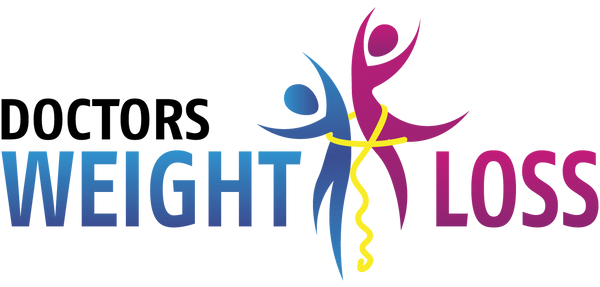The nutrition world seems to have never-ending information these days and having so much knowledge at our fingertips can be a wonderful advantage! However, there are numerous nutrition myths that have been circulating for decades now and many stemmed from food lobbying and funding from special interest groups. For example, particular industries such as wheat and dairy have been urging us to consume their products for years, not necessarily for bonified health reasons, but possibly for the strengthening and support of their own bottom lines. Below you will find four of the largest nutrition myths, busted!
Myth 1: You need whole wheat bread, pasta, and cereal to get your fiber!
Excellent marketing by the food industry has made people believe that whole wheat bread, whole wheat pasta, and whole grain cereal are good sources fiber. The truth of the matter is that you can get much more fiber per calorie in other sources of non-processed, natural foods. For example, one must eat 1,350 calories of whole wheat bread to achieve 30 grams of fiber, whereas, one can have just 195 calories worth of artichoke hearts to obtain that same 30 grams of fiber. The same goes for pastas and cereals--one must consume over 1,250 calories of those items for 30 grams of fiber, but you can opt for 240 calories of raspberries, 465 calories of broccoli, 515 calories of pears, or 480 calories of lentils for the same amount of fiber.
In addition to having more fiber per calorie, natural foods such as broccoli, raspberries, artichoke hearts, pears, flax-seed, Chia seeds, split peas and lentil are non-processed and contain no artificial additives but most commercially-made breads, pastas, and cereals do. Whole foods are superior when it comes to vitamins and minerals too. Breads and cereals are fortified with vitamins, which means they do not occur naturally and therefore, they are harder to absorb. The next time you are in a grocery store, look at the ingredient labels of breads, pastas, and cereals—you’ll find a plethora of ingredients (such as sugar, high fructose corn syrup, and preservatives) which are not ideal for weight loss or wellness. Now of course, it can take additional prep time and refrigeration for the above mentioned fiber-packed whole foods, so if you're looking for something that is easy on-the-go, check out our delicious caramel and sea salt fiber bar here! One bar has only 150 calories and packs a fiber punch of 5 grams; an added benefit, it also has a whopping 15 grams of protein.
Myth 2: Don't eat seafood--it has too much mercury, and toxins!
Yes, there are some fish to avoid due to high mercury content such as Tilefish, Shark, Swordfish and Mackerel. On the other hand, there are many types of fish that are extremely beneficial for weight loss and wellness. Wild Salmon, for example is relatively low in mercury but high in protein and Omega-3 fatty acids which is good for brain and heart health, not to mentioned, those healthy fats keep you fuller for longer which helps to fend off food cravings.
According to the Natural Resources Defense Council, the following listed sea foods are the lowest in mercury: Anchovies, Butterfish, Catfish, Clam, Crab (Domestic) , Crawfish/Crayfish, Croaker (Atlantic), Flounder, Haddock (Atlantic) , Hake, Herring, Mullet, Oyster, Perch (Ocean), Plaice, Pollock, Salmon (Canned), Salmon (Fresh), Sardine, Scallop, Shad(American), Shrimp, Sole (Pacific), Squid (Calamari), Trout (Freshwater) and Whitefish.
A quick tip about canned tuna! If you consumer more than two cans of tuna per week, opt for the chunk-light variety as it has three times less the amount of mercury, compared to solid white albacore.
Myth 3: Drink lots of milk to get your calcium!
Once again, the marketing for milk has been genius—it does a body good, right? Or not so much. First of all, cow’s milk has hormones in it which help to grow very large cows! Even if you choose the organic brands, the hormones (intended for cows) still remain. Milk is touted for its calcium content and is known for building strong bones but some studies suggest that calcium found in cow’s milk has no correlation with strong bones and prevention of fractures. Not to mention, at twelve grams of sugar per cup, it’s not the ideal beverage for weight loss. If you're wondering where to get your calcium from (in the absence of dairy), opt for sesame seeds, sardines, collard greens, spinach, salmon, white beans, kale, almonds, and oranges, or to see our convenient calcium chews, click here!
Myth 4: Stay away from fat!
It is true that many fats should be limited or avoided, but not all fats are created equally! We tend to overdose on Omega-6 fats which are found in items such as processed foods, vegetable oil, fast food, cookies, chips, and French fries and then lack the Omega-3 fats that are most beneficial. Omega-3 fats are found in foods such as wild Salmon, walnuts, flax-seed, avocado, and grass-fed meats, and these fats are not only beneficial for weight loss, but they have also been shown to lower your bad cholesterol!
You will receive a lot of advice (good and bad) when trying to lose weight and get healthy—hopefully, we have cleared up some confusion for you by dispelling some of these popular myths. Nutrition can be complicated due to the never-ending and conflicting resources that are available today. To avoid implementing practices that may negate your wellness efforts, always do your own research and consult with your health care professional to determine what is best for you!






